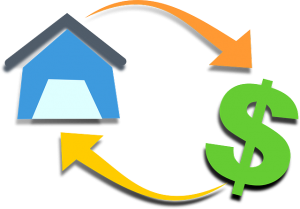Consolidating credit cards and loan debts and paying it off via a remortgage can seem a no-brainer – after all, given the size of the debt, mortgage payments can seem low. However, it is not necessarily the win-win strategy it seems
By: Girija Simon
- Think carefully before you remortgage to secure other debts against your home. You may have to pay an early repayment charge to your existing lender if you remortgage and other fees may be payable.
- Your home may be repossessed if you do not keep up repayments on your remortgage.
 What is debt consolidation?
What is debt consolidation?
Table of Contents
The idea of consolidating debt is a pretty simple one, and has been around for a long time. In essence, the idea is that you take a number of debts – for instance credit card balances and loans – and pay them off by moving them to a single, cheaper debt. The theory is that, by consolidating, you end up paying less each month, thereby taking some pressure off those monthly household finances.
Is consolidating a good idea?
There is no single answer to this question, since a lot depends on your circumstances – in particular how much debt you have, from how many sources and what level of interest you pay on it. For instance, if you have a lot of credit card debt, consolidation may well be a good idea, since credit cards are often the most expensive way to borrow money. The reality, however, is that the vast majority of people who use consolidation to pay off credit card debts go on to run up debt again – ending up with both the original consolidated debt and a new credit card debt.
In simple terms, consolidating debts is not the easy option it seems as there are lots of potential pitfalls that need to be considered as well as the short term benefits.
It is useful as a last resort if you are really struggling to meet a variety of monthly payments – however, once you have taken this step, you must be very disciplined about falling into debt again.
Can I use my mortgage to consolidate debts?
In theory, yes you can. However, there are lot of considerations to weigh up before you take this step – some of which will help you decide if it is a good idea, and some of which will determine if it is even possible.
Can I do it?
Before you think any further about using your mortgage to consolidate debts, it is worth thinking about whether it is going to be possible. Here are some of the key areas to consider:
-
Do you have enough equity in your property to enable you to borrow more money against it? Remember that when you borrow more against your mortgage, you are actually borrowing against the value of your property. If your mortgage is already around or above 80% of the value of your home, borrowing more money is likely to be very difficult, or at least expensive.
-
Does your mortgage deal allow you to borrow more and are there any costs involved? Check the terms and conditions of your mortgage to see if additional borrowing is allowed. If it is, check what costs are likely you be involved (fees etc). Remember that any fees or administrative costs are likely to be added to the loan, effectively making your debt that much higher.
-
Would you be forced to remortgage? If you would need to find a new mortgage deal in order to borrow more then there are likely to be costs involved. For instance, getting out of an existing deal is likely to incur early repayment charges – again, these can usually be added to the new loan, but this means your debt will be higher and overall more expensive.
-
How much would it cost you? If you are serious about considering this course of action, it is a good idea to contact your mortgage lender to find out how much you can borrow and at what cost. The answer they give you will help you decide if it is a good idea to roll other debts up with your mortgage.
Is it a good idea?
Well, as with most financial decisions, there are upsides and downsides, but no hard and fast answers – everything depends on your situation. The trick here is to balance the potential benefits with the risks.
Take the benefits first:
There is not a lot to say here, except that your monthly payments will certainly be lower. That is, because mortgages are typically repaid over a long period, the portion of the monthly payments linked to your consolidated debts are likely to be much lower than they were before.
In essence, the benefits associated with this kind of consolidation are short term – you will be better off each month compared with paying off a loan or credit card. However this is certainly not true over the long term, and there are significant risks to be aware of.
But seriously consider the risks and downsides of a remortgage:
Putting your home at risk: It is always a bad idea to convert unsecured debt to secured debt, since this puts your home in the firing line should things go wrong. This should always be a route of absolute last resort.
The overall costs are likely to be much, much higher. That is, you may well pay a less each month but, since mortgages are long term debts, you are likely to end up paying a lot more interest than you would on a short term debt product.







